It’s hard to believe that we’re nearly halfway through the year, and even harder to recall everything that has transpired since the clock struck midnight on January 1. This is especially true for me, as my diary was recently transported away during a massive cyclone.
Back in mid-January, I left my home in Beijing to participate in a two-week language course in South Korea. This decision has led to a string of unexpected circumstances that has landed me on a small island chain in the middle of the Pacific Ocean, in the Polynesian state and archipelago of Tonga.
Never heard of Tonga? Don’t worry, neither had I before I arrived here. That was part of the nation’s allure: It is remote, lesser-known and not overcrowded – the perfect weekend getaway. But I’m getting ahead of myself, so let’s go back to the beginning and explore how my two-week educational trip to South Korea turned into a six-month ordeal (and it’s not over yet, folks) as a ‘doubly-stuck’ person in the middle of the ocean.
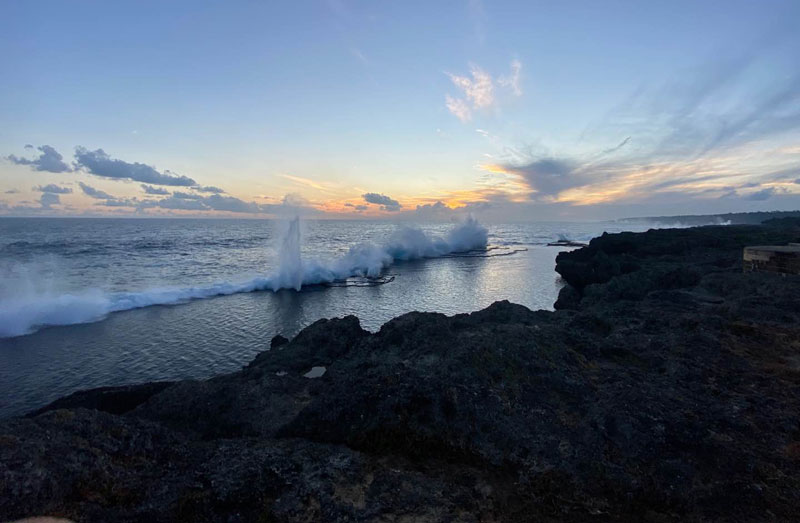
The coastline in Tonga. Image via Zoe Stephens
First, a bit of background on me: I’m an expat from the UK working in tourism in the DPRK (North Korea) with Koryo Tours, a company based in Beijing. On January 19, I left China for the aforementioned trip to Seoul. Since I’d be staying in the same place for two weeks and wouldn’t be moving around too much, I packed up my belongings in a massive suitcase. The large luggage was essential, as I needed space for all of my winter clothes.
Before I left, I had dinner with a Japanese friend living in Hong Kong. He asked me why no one in Beijing was wearing masks. To be honest, I hadn’t noticed much of a change in the number of people wearing masks, so I asked him why he thought that, and he started to talk about ‘corona.’ At this point, I still only associated the name with the beer brand.
Once outside China, things began to escalate quite quickly. During my 14-day stint in Seoul, two friends from Beijing came separately and visited me, and we watched in awe as the number of people infected with the novel coronavirus – as it was then known – continued to rise in China and around the globe. We discussed going back and being potentially locked inside China, or staying outside the country and risk being locked out.
Both of my friends returned to Beijing, but I decided to stick it out for another week in Seoul and continue working remotely. I didn’t realize then that this was the last time I’d see either of these friends – or any friends at all, for that matter – for many months.
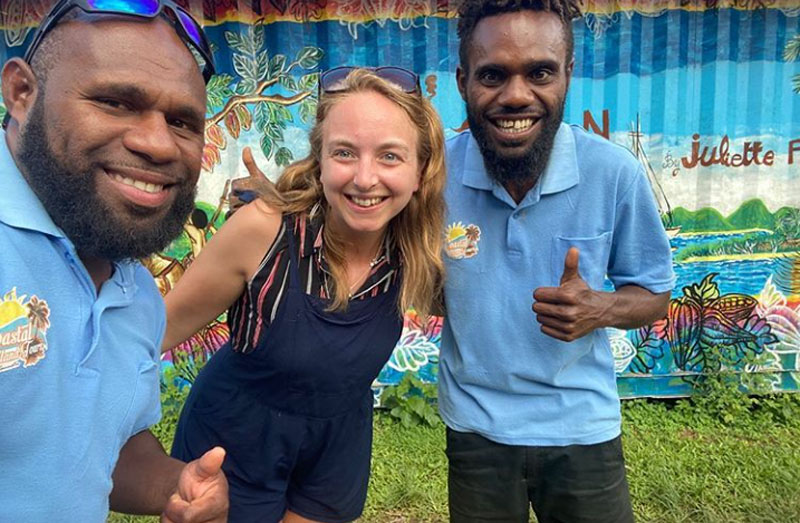
Zoe in Vanuatu. Image via Zoe Stephens
As the epidemic situation continued to worsen and escalate, I decided to move my planned holiday to Fiji from March to February and boarded a plane for the tropics. I intended to stay in Fiji for two weeks, but as the quarantine situation in Beijing evolved from suggested home quarantine to mandatory quarantine at home or in government facilities, my trip was prolonged using some vacation days at work and by promising to work remotely while away.
During my time in Fiji, I spent a lot of time traveling, as there had been no reported cases in the South Pacific. I visited Vanuatu and the Solomon Islands, and as I was moving, I followed the daily updates about COVID-19’s spread around the world. It felt distant, though, as life in the Pacific was carrying on as usual.
Around the start of March, things began to calm down in China and it looked as if I would soon be returning to a Beijing that was similar to how I had left it. On March 11, though, the World Health Organization declared the disease outbreak a pandemic, with the UK, US and European nations seeing a troubling increase of cases. All around me, everyone was talking about it, panicking, gossiping, spreading fake news and wild speculations.
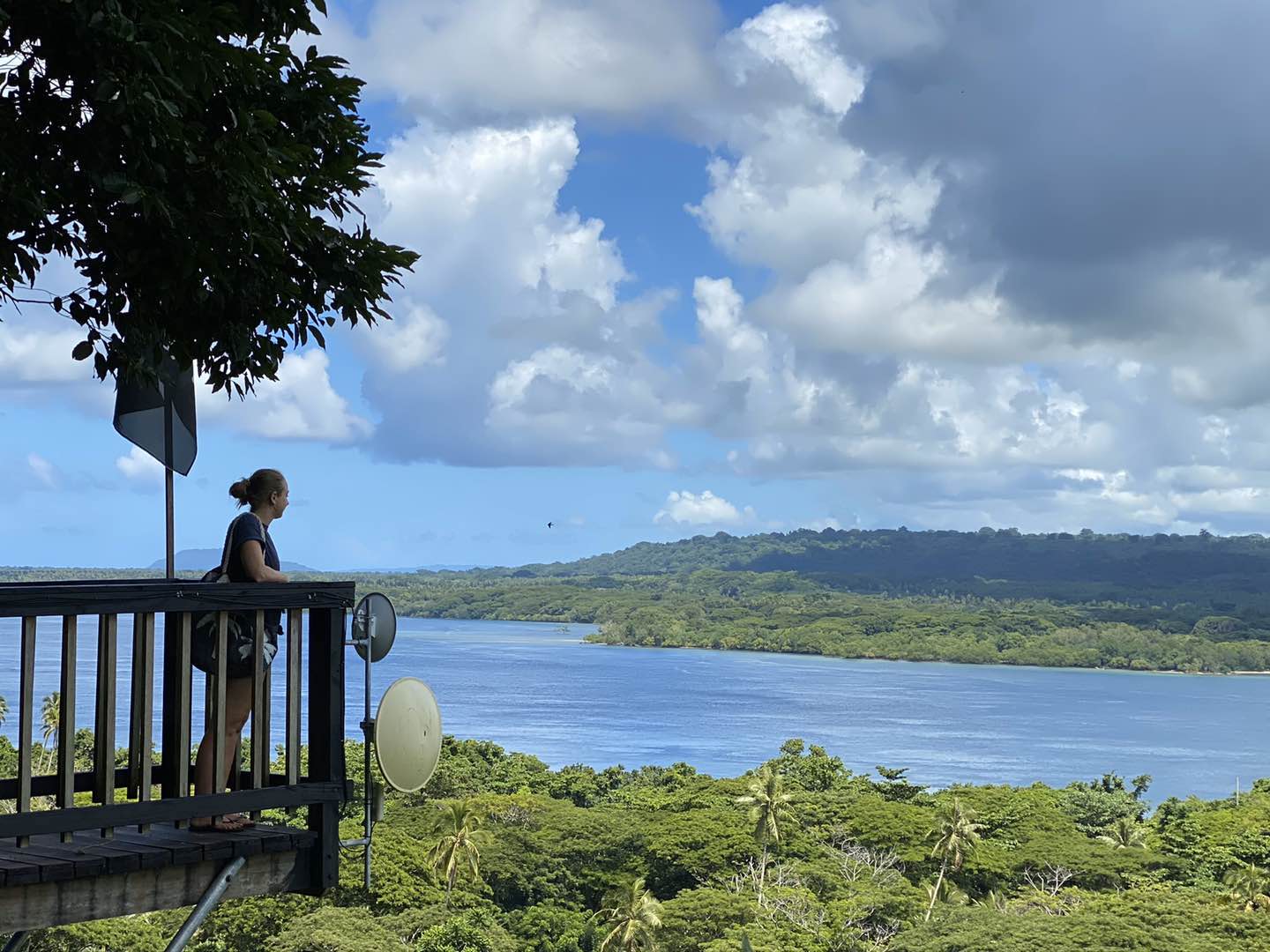
Zoe in Vanuatu. Image via Zoe Stephens
This is what brought me to Tonga, a remote island where I could relax for the weekend away from the panicking masses. The plan was to leave Thursday, come back on Sunday and be ready for the workweek on Monday back in Fiji. I left my big suitcase with my unnecessary belongings (it was -15 degrees Celsius when I left South Korea) at a hostel in Fiji and departed for Tonga with just a small backpack.
Unfortunately, as soon as I touched down in Tonga, Fiji reported its first coronavirus cases. Fiji being the gateway to many Pacific island nations, I knew this meant the end of the laidback ‘island living’ I had become accustomed to. I tried to leave Tonga on the Friday and go to New Zealand, but the flight was for New Zealand nationals only. I tried to board a flight to Fiji on Saturday, but that flight was for Fiji nationals only. This was the last international commercial flight out of Tonga. Fast-forward two months, and I’m still here. Albeit unwillingly and with a few less belongings.
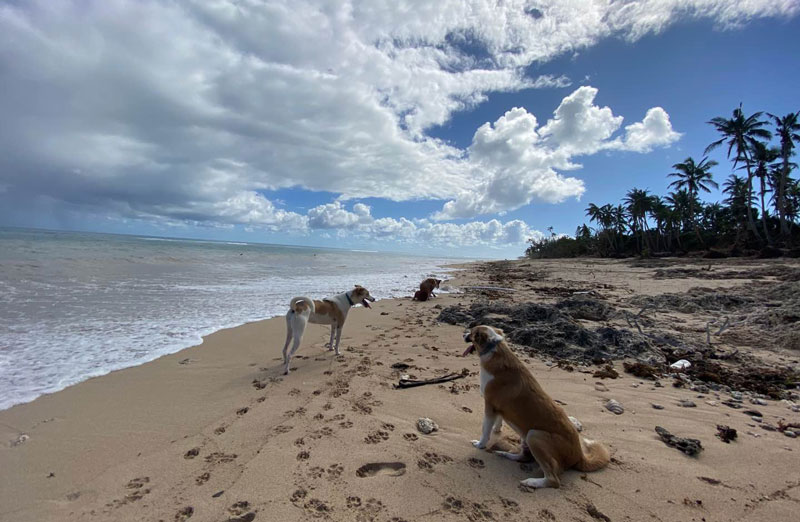
A beach in Tonga. Image via Zoe Stephens
The locals in Tonga were not friendly at first, but I don’t blame them: Fiji had just confirmed its first four cases, and I was a foreigner who had just arrived from Fiji. Hotels, hostels and restaurants were all shutting down and Tonga was preparing for a 14-day lockdown.
I found a long-term place to live with four other foreigners that was located far from town and next to the sea. After stocking up on essential goods, I settled into the stranded life and accepted the fact that I’d be stuck in Tonga for a while.
This acceptance became easier when China closed its borders to the outside world on March 28 to avoid a second wave of COVID-19 cases domestically. I was both locked in and locked out.
During my two-week lockdown in Tonga, people could only go out for essential shopping, there was also an 8pm curfew and groups of 20 or more were not allowed. Social distancing measures were put in place. No one wore masks, not even the Chinese shop owners here, but there was hardly anyone on the street anyway.
READ MORE: Koryo Tours GM on Russian Adventures, ‘Gates of Hell’ and More
Checkpoints were placed between villages and passing through one required a very good reason. On a 35-minute drive you could easily hit seven or more checkpoints. They registered your name, where you were coming from and where you were going.
After the lockdown ended, Tonga officially became a coronavirus-free country: It had tested four patients who were all negative, and no flights were coming in or out of the country. The local Tongan people started to become less weary of foreigners and were much more friendly and happy to speak to me – although I do still feel nervous coughing in a public place, and I’m conscious that some people do keep their distance.
Coronavirus quickly became an afterthought in Tonga, but not because the country had been declared virus-free. Three days before the lockdown was lifted in early April, Cyclone Harold, a category 5 cyclone, hit Tonga. It combined with the biggest tide of the year and resulted in devastation throughout the country, especially along the coast and on smaller islands.
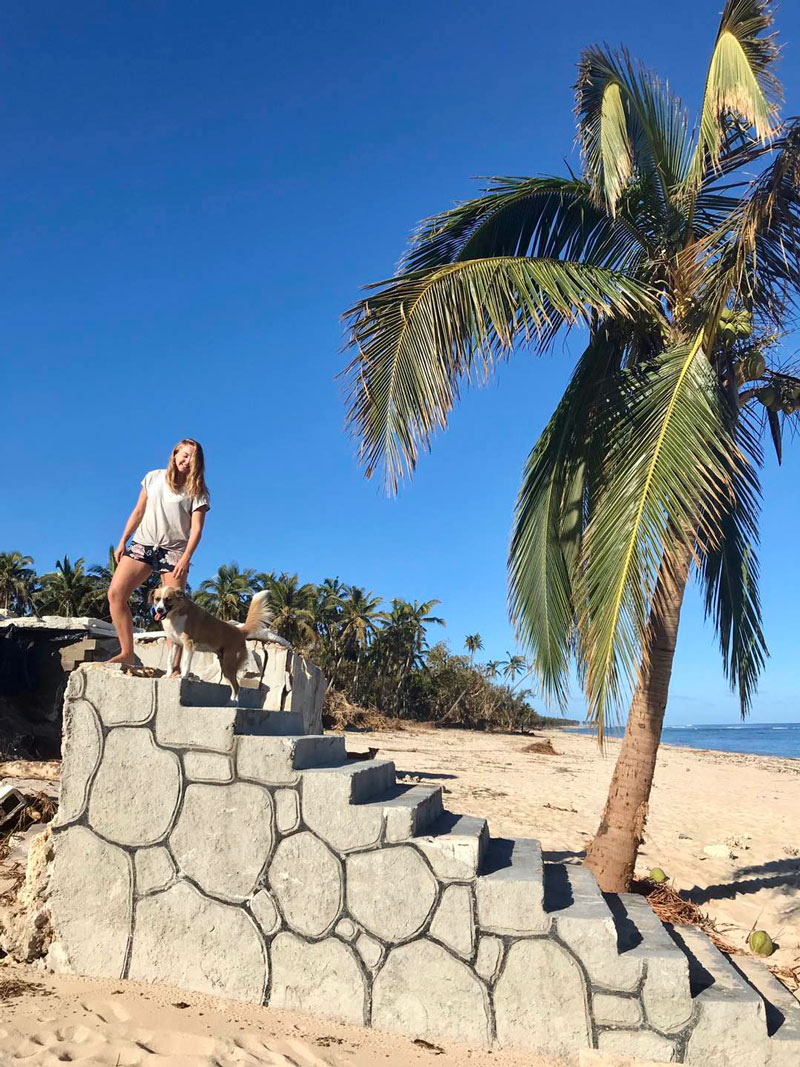
The aftermath of Cyclone Harold. Image via Zoe Stephens
From the balcony of the house I’d rented, I watched houses get washed away by the storm-fueled torrents of water and the entire downstairs of my home-away-from-home washed away. The cooker was washed up onto the stairs, the doors torn open and all of my stuff was gone. Luckily, I had brought my laptop upstairs the night before by chance. Luckier yet, the waves didn’t hit 20 minutes earlier when I was downstairs.
As more luck would have it, I found a new place to stay that same day. A house nearby needed a house sitter. That’s where I am now, writing this story with four dogs lying around me on a patio that overlooks the sea and the devastation that sprawls across the white-sand beaches.
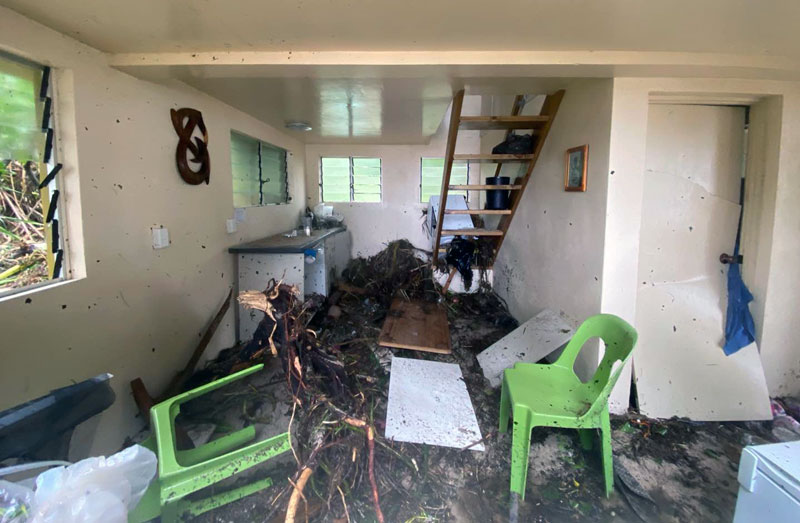
The basement of Stephen’s rented house after Cyclone Harold. Image via Zoe Stephens
It’s been a couple of weeks since the lockdown was lifted and I moved into my new place. Life seems to slowly be returning to normal. There are domestic flights and ships to the different islands, and neighboring New Zealand and Australia are talking about starting flights from mid-June. Maybe I’ll be able to leave then and eventually make it back to China – although, I know the country I call home will likely be a very different place when I return.
Zoe Stephens works with Koryo Tours in Beijing. You can follow her adventures on Instagram (@zoediscovers), or on YouTube.

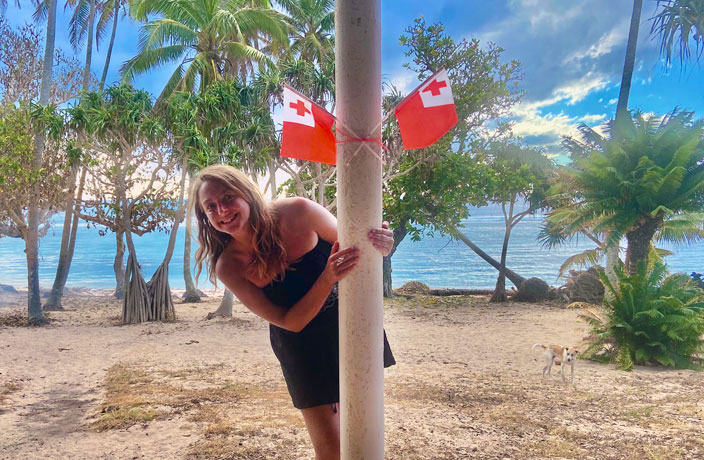

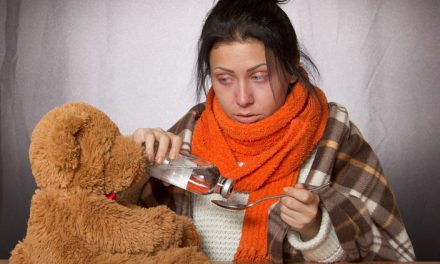

![[Homes]: Art Collector Raffaella Gallo’s Hongqiao House](https://www.life-china.com/wp-content/uploads/2019/07/1560417332-440x264.jpg)
Recent Comments